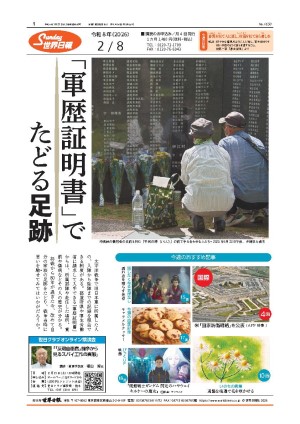ロシア、中国に圧力かけない―新START延長交渉 Russia says it won’t push China to join talks to save New START
ロシア外務省幹部は9日、米露の外交当局者間で、失効が近い新戦略兵器削減条約(新START)の今後について月内に協議が行われることを確認する一方で、米露間の条約に中国を参加させるというトランプ政権の主張に悲観的な見方を示した。
リャプコフ外務次官は9日、外交評議会のオンライン会合で、10年を期限とする新STARTをめぐって、武器管理交渉の米大統領特使マーシャル・ビリングスリー氏とウィーンで会談することは「いい知らせ」だと述べた。新STARTは、両者が来年2月までに延長で合意に達しなければ失効する。
リャプコフ氏はその後、ロシアのタス通信で、交渉は、米露間に残る唯一の武器管理に関する枠組みの柱である新STARTの存続を目指すものであり、「プロセスをスタートさせ、何らかの道筋を付ける」のに役立つと語った。
同時にリャプコフ氏は、交渉への米露間の期待には大きな相違があることも明確にし、条約そのものを破棄してしまうというリスクを冒すのでなく、5年間の延長で合意すべきであり、それなら、トランプ米大統領とプーチン露大統領との間で合意できると主張した。
その上でリャプコフ氏は、延長後の新STARTに中国を参加させるという米国の計画を支援するムードはロシアにないことを明確にした。ビリングスリー氏は5月のワシントン・タイムズとのインタビューで、ロシアは「中国を交渉のテーブルに着けるのを支援」し、中国の小型化され、急拡大する核戦力への制限について話し合うべきだと述べた。
ビリングスリー氏は8日、「中国も招待された。協議に現れ、誠実に交渉するだろうか」とツイートした。
中国政府当局者は、中国の核兵器は米露よりも大幅に少なく、3者協議に興味はないと繰り返し主張してきた。
さらにリャプコフ氏も、ロシア政府に、中国政府に考えを変えさせるよう説得する雰囲気はないと述べた。
外交評議会のオンライン会合にモスクワから参加したリャプコフ氏は、「中国を交渉のテーブルに着かせることが可能だと考えるかどうかに対する直接の答えは、完全にノーだ」と述べた。
「時間を稼ぐ最も簡単な方法は、両政府が2010年に批准されたままで条約を延長することだ。その上で、延長した5年間に、新たな軍事技術に関連するものなど、あらゆる課題に対処する方法を探すべきだ」
リャプコフ氏は、ロシア政府がこのところの米国の動きを懸念していると述べた。「米国の増強で、何が起きているのかについて多くの懸念を抱いている。つまり、米国のミサイル防衛がますます世界的になっていることだ」
(6月9日付)
One of the Kremlin’s top diplomats confirmed Tuesday that U.S. and Russian diplomats will meet later this month on the future of the expiring New START arms control deal, but poured cold water on the Trump administration’s hopes of forcing China to join the bilateral pact.
Deputy Foreign Minister Sergei Ryabkov told a Council on Foreign Relations virtual briefing Tuesday that it was “good news” that he and U.S. counterpart Marshall Billingslea, President Trump’s special envoy to the arms talks, will meet in Vienna for talks on the 10-year New START pact, which expires if the two sides can’t reach a deal by February.
He later told Russia’s TASS news agency that the talks, aimed at salvaging one of the last remaining pillars of the U.S.-Russian arms control treaty structure, will help “make this process get off the ground and map out a certain way forward.”
But he also made clear there are significant differences in the U.S. and Russian hopes for the talks, and said the two sides should agree on a five-year extension of the current deal - which Mr. Trump and Mr. Putin could do on their own - rather than risk have the accord fall apart altogether.
Mr. Ryabkov also made clear Moscow is in no mood to join a U.S. plan to force China to participate in an expanded New START deal. Mr. Billingslea told The Washington Times in an interview last month that Russia must “help bring China to the table” to discuss limits on Beijing’s smaller but rapidly growing nuclear arsenal.
“China also invited” to the Vienna talks, Mr. Billingslea tweeted this week. “Will China show and negotiate in good faith?”
Chinese government officials have repeatedly said Beijing has no interest in joining three-way talks because their nuclear stockpile is far smaller than those of the U.S. and Russia.
And Mr. Ryabkov said his government is in no mood to pressure Beijing to change its mind.
“My answer to a direct question on whether or not we think it would be possible to bring China to the table would be a flat and straightforward no,” he told the Council on Foreign Relations by videoconference from Moscow.
The Russian minister argued Tuesday that “the easiest way forward to buy time would be to extend the existing treaty, as ratified in 2010, in both capitals and then use [the] five years of this treaty extension to…find probably a better way to address all sorts of issues, including those associated with new military technologies.”
He said the Kremlin had its own worries about recent U.S. moves; “We have many concerns about what is going on in the American build-up. This is American missile defenses becoming more and more global.”
June 9, 2020





